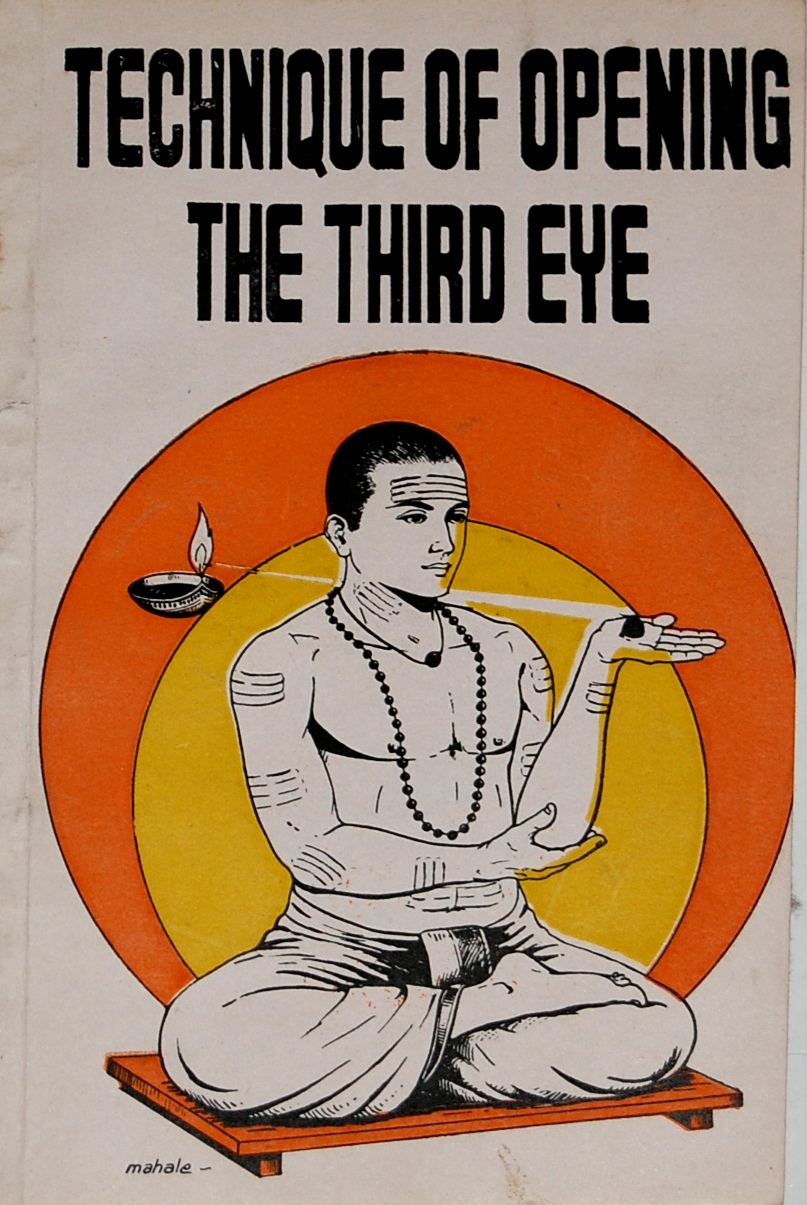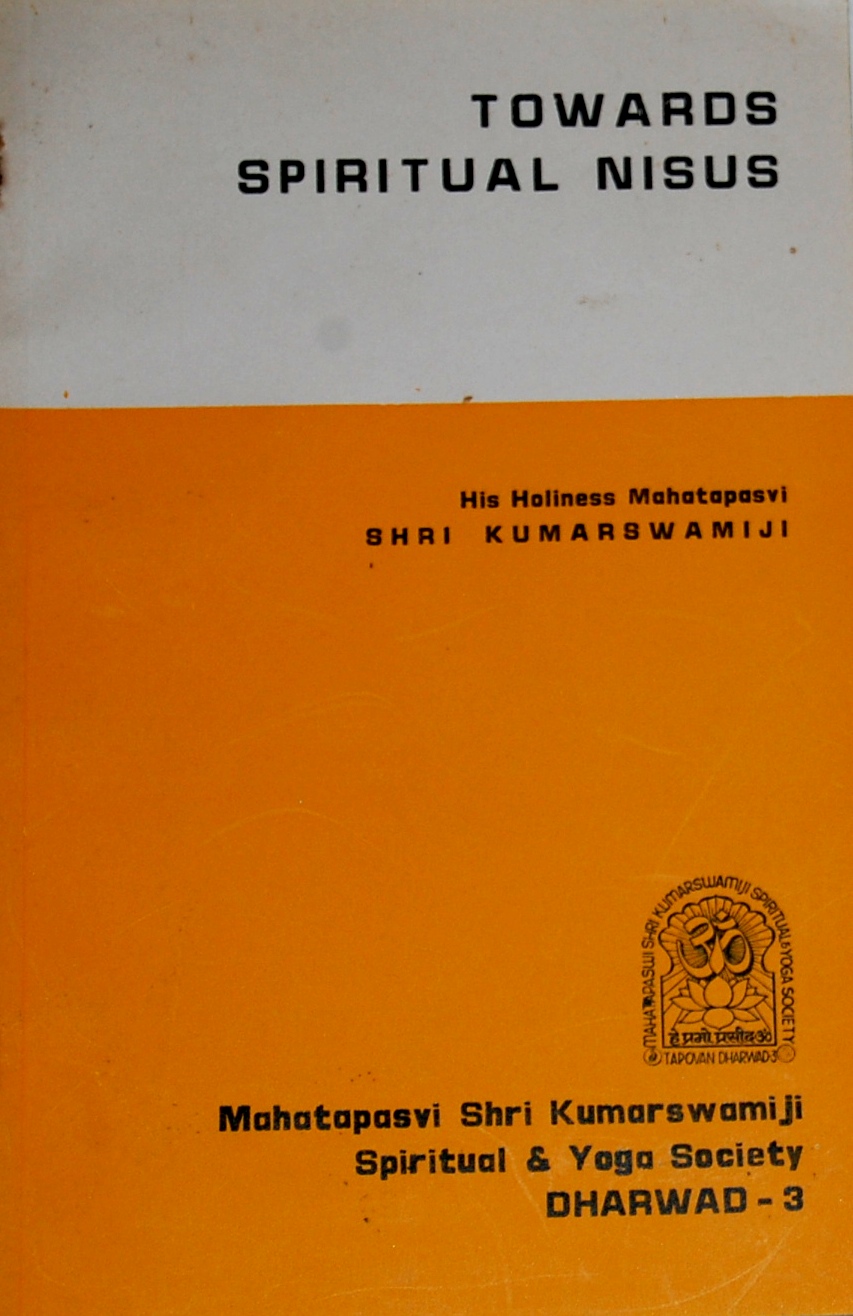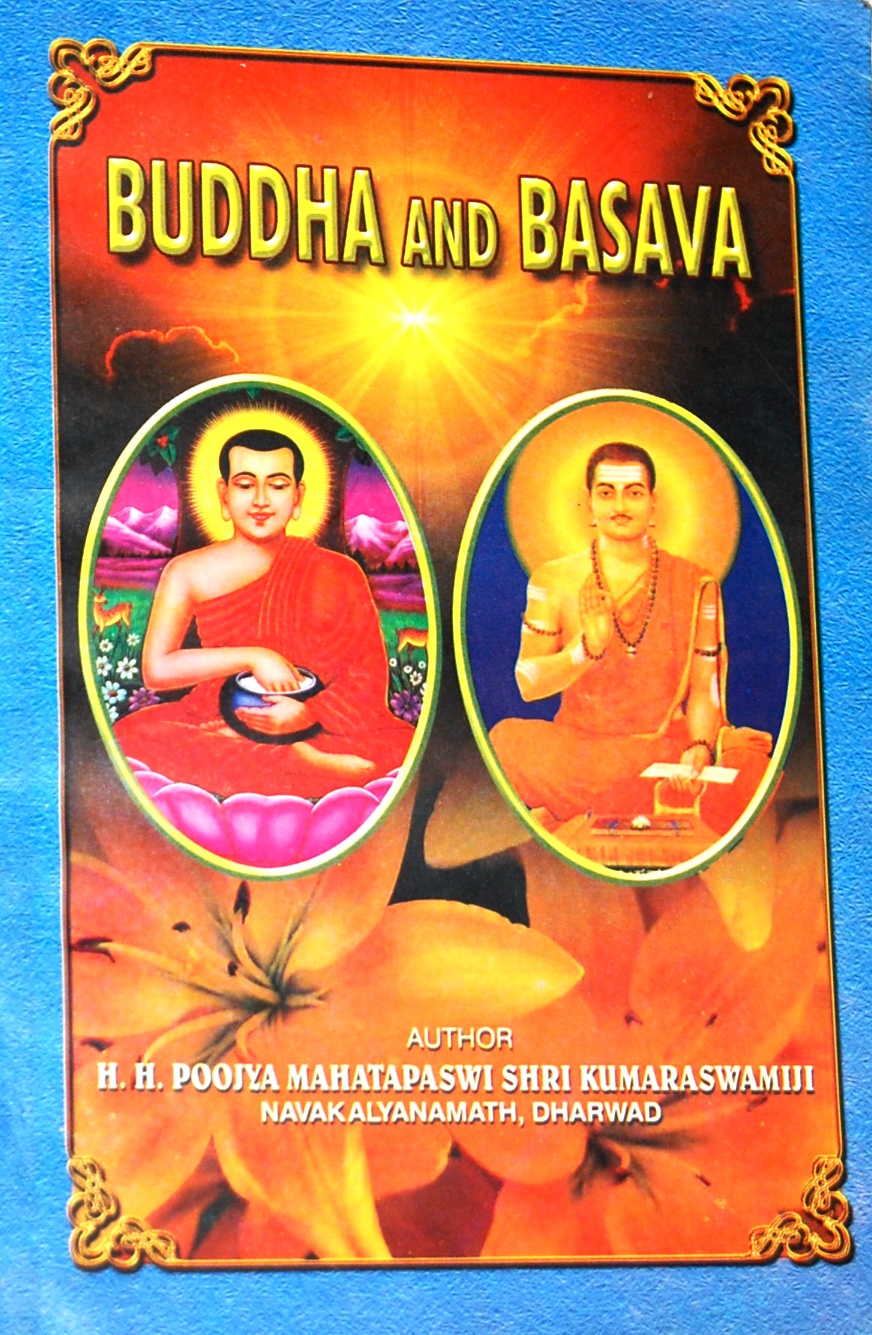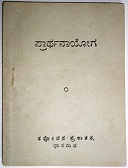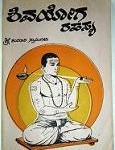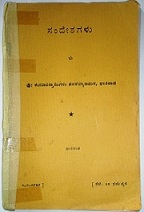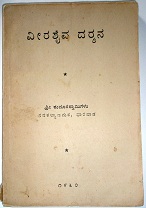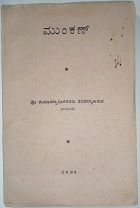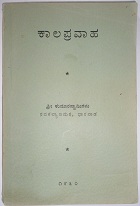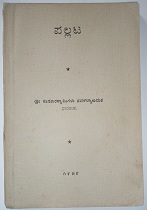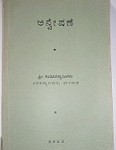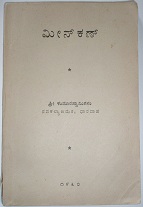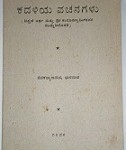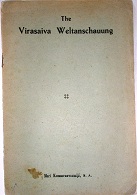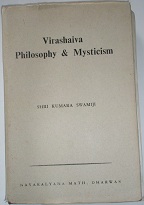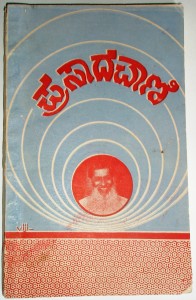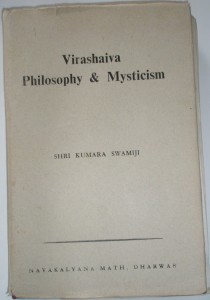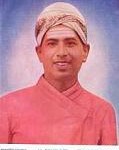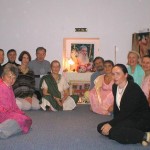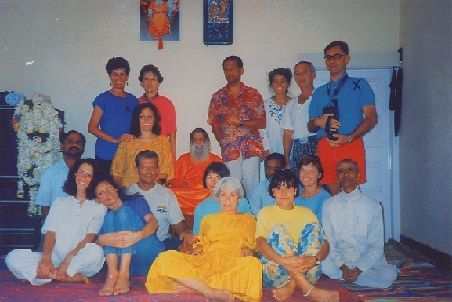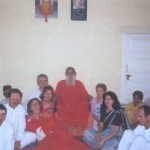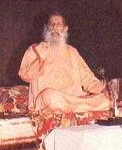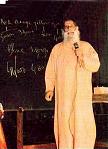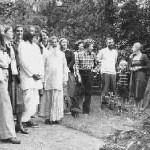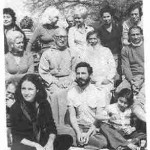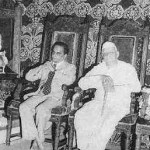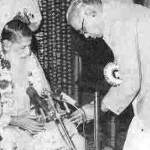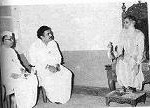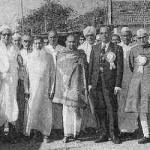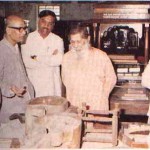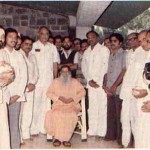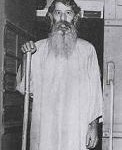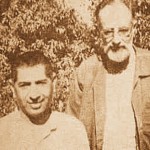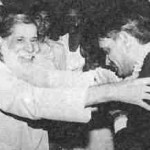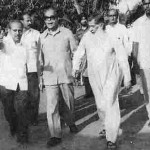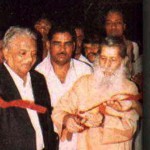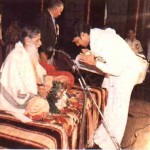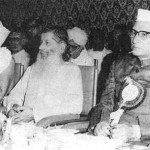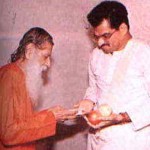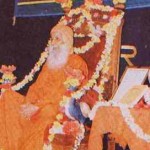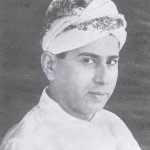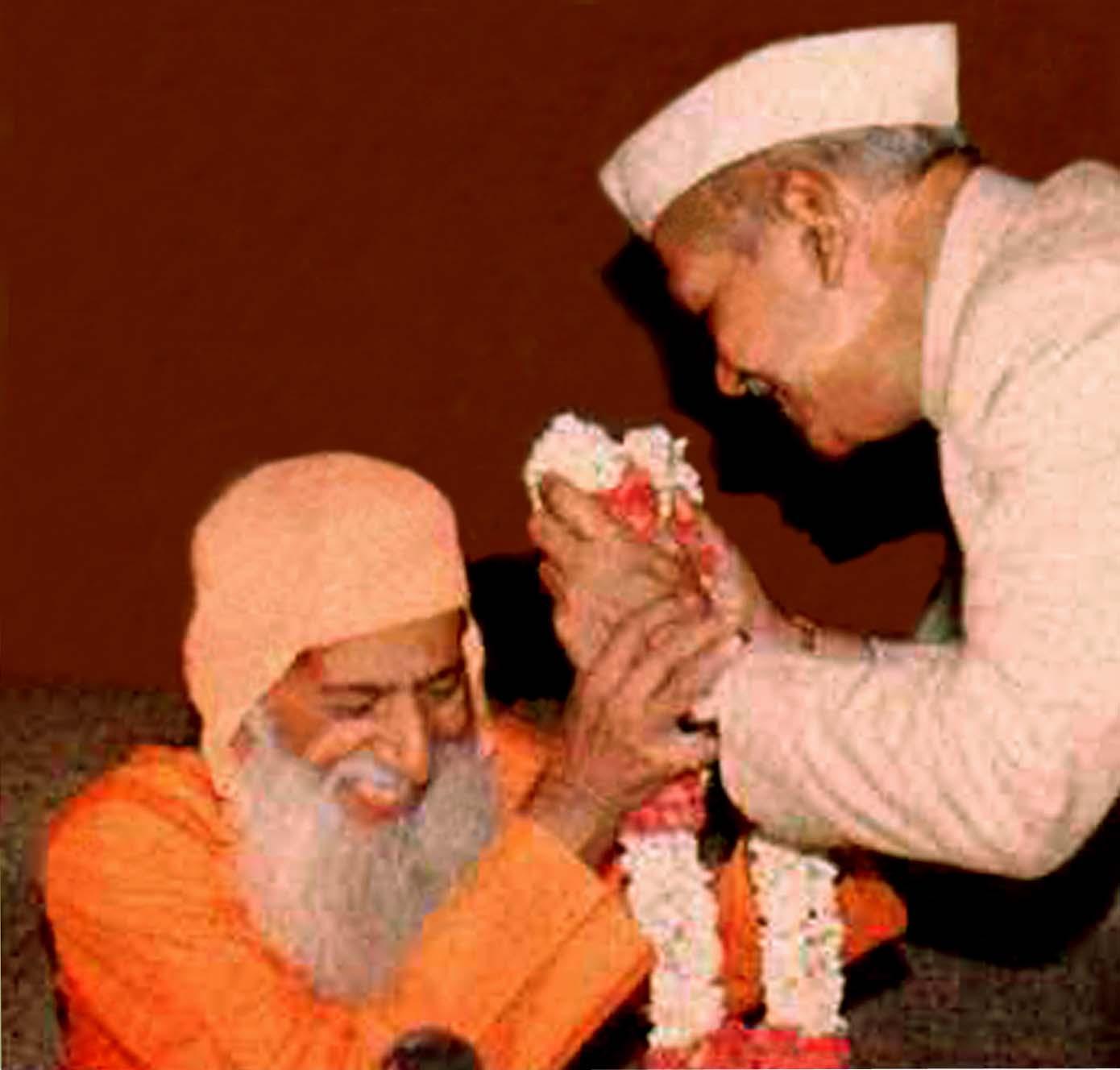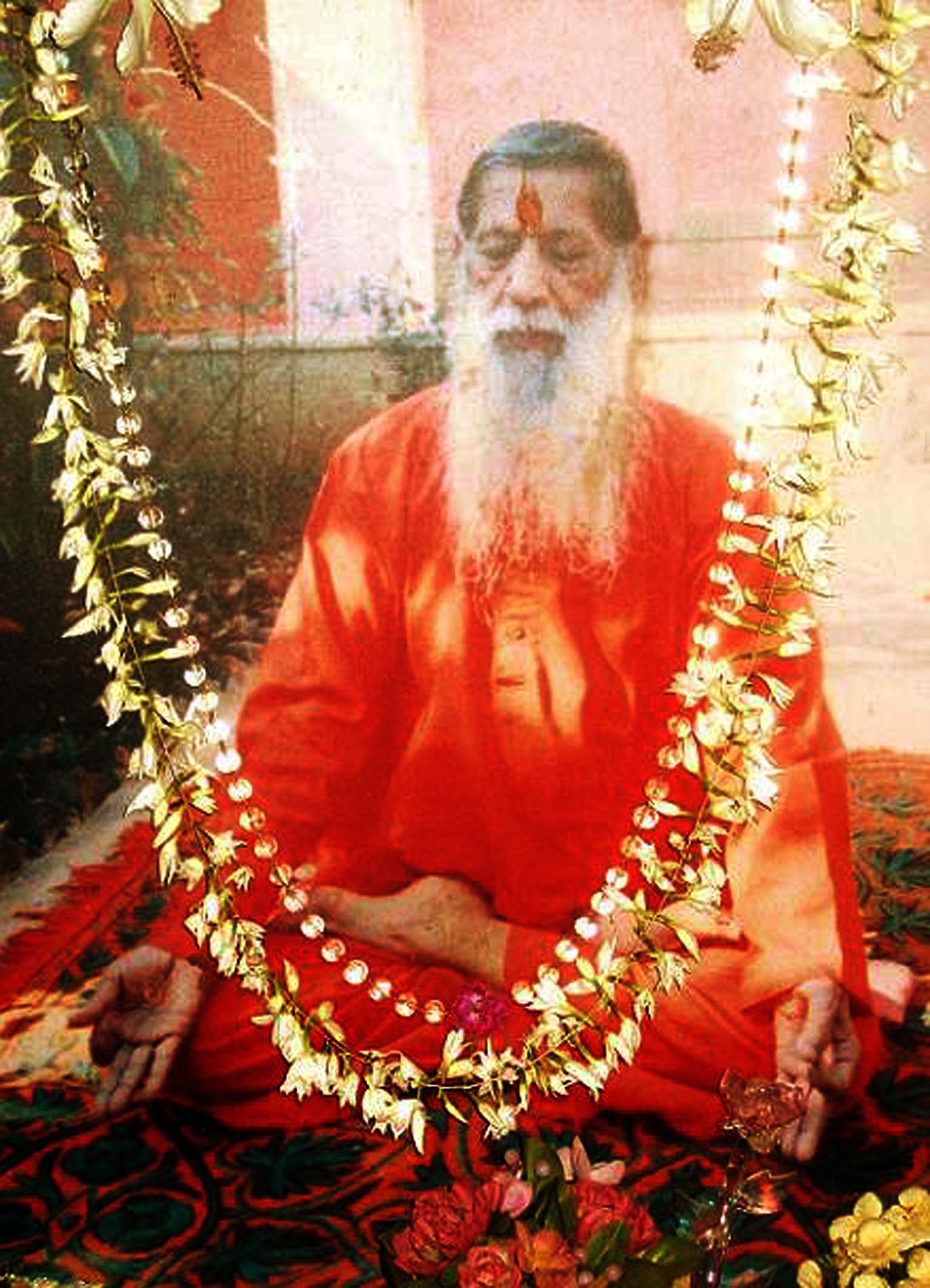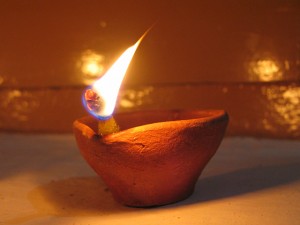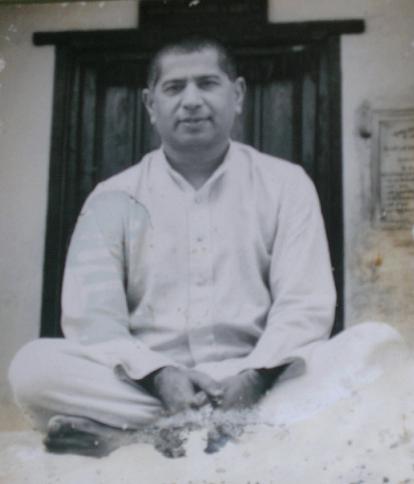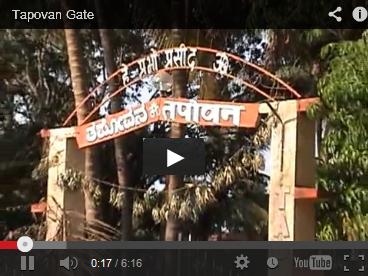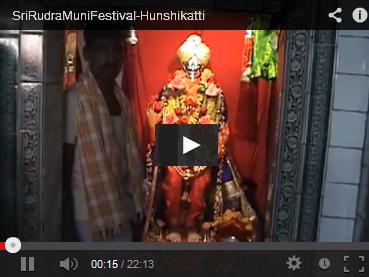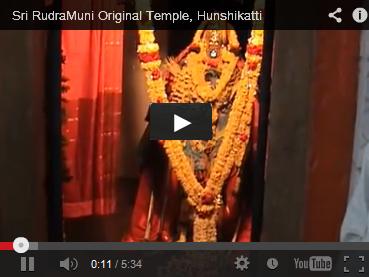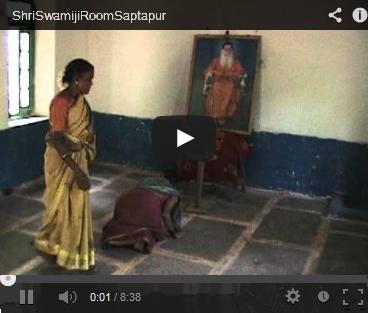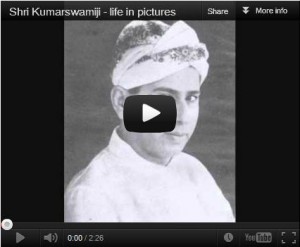Basva was a great prophet. The greatness of man does not consist in his isolation from his fellowmen. A man, no matter whether he is regarded as a prophet or an incarnation of divinity, lives as other men. The physical plane is the same for all and the only distinction lies in the moral and spiritual spheres. Christ was a carpenter’s son and lived a humble life and mixed with humble folks. Buddha obtained his daily bread by begging and lived on terms of familiarity with his disciples. Basava led a simple life, mixed with common men, though he was a powerful minister. The time comes when the voices lifted in blame are stilled and the worth of a man is placed beyond reproach and criticism. Pilate, priest and Pharisees have passed away. Who now speaks ill of Jesus? Buddha was maligned by Devadatta and others spoke ill of him. But the time has stilled those self-serving voices. Basava was criticized by columminators but the time had drowned their voices forever. Today, Basava stands acknowledged as one of the greatest prophets ever to grace this earth.
Basava was a great prophet. His greatness lay in the way he led his life and the manner in which he achieved Aikya (salvation). Real greatness is of different types – the manifestation of the heroism in man in different forms is to be found in a small number of men. Greatness is thus found on a graduated scale and higher the form of greatness, the slower is the recognition accorded to it. Men to whom the distinction of greatness is given as a title are sometimes no benefactors of humanity. In other words, some are born great, some achieve greatness and some pretend to be great. Basava was born a great person. What does the world owe to Alexander, the Great and Napolean Bonaparte? They sacrificed thousands of human lives to their own ambition of conquest and brought sorrow, misery and lamentation to thousands of peaceful homes. They have left no enduring monument of good work nor anything to promote the happiness of the peoples over whom they ruled. Yet, history considers them great men! Others whom history has recorded as great received neither any appreciation nor any reward in their life-time. Homer was no more than a wandering singer who probably lived on the charity of other people. Shakespeare, who was an obscure play-wright in his life-time, frequented the antierooms of titled patrons. They are now remembered with gratitude. Shakespeare’s birth place is now a place of pilgrimage! The greatest men are prophets and sages of all ages, who were rewarded with punishment. In fact these holy souls were called upon to make the utmost sacrifice.
Basava appeared at a time when the Hindu society was at the lowest ebb. The religious and social institutions were defunct. He strove to regenerate the institutions with missionary zeal and succeeded to a considerable extent in his endeavor. But, all was not smooth; he was met with opposition from orthodox individuals, who had their own axe to grind. All human institutions have a tendency to move along a fixed groove and all innovations are looked upon with suspicion and alarm by the people with a vested interest. Any change in a status-quo is rarely welcomed by the establishment and is usually met with great resistance. Similarly a new doctrine or a new truth is always regarded as a menace to the existing order of things. Great men do not keep pace with ordinary run of the mill mankind. They do not accept with credulity of the age old customs and practices, which men have blindly followed for generations. They find a society comfortable ensconced behind old beliefs and old institutions hardened with times but they shake it by their new fangled doctrines or the new truths they claim to have found. Every form of authority, whether it is a hierarchy or an oligarchy or an autocracy, it demands submissiveness for a smooth sailing of the power be. It will not tolerate any challenge to its sovereignty nor brook any hesitation on the performance of its dictate. The world is accustomed to mediocres and the men holding steadfastly to beaten tracks. The world history is full of instances of persecution of innocent men who have expressed opposition to established beliefs, customs and practices. Socrates was put to death by the Athanians (Greeks), Jesus Christ was crucified by the orthodox self-serving Jews and Romans, Latimer was burnt alive at the stake in England by the Christians and Gandhiji was shot by a fanatic Hindu. Instead of a shield and buckler, greatness is frequently a challenge to the establishment. It is only after the passage of considerable time that the man condemned by law rises up as a martyr. It is at that time that posterity blows its trumpet about his greatness.
Basava, one of India’s outstanding religious and spiritual teachers, was a statesman as well as a man of letters. His vachanas or inspirational sayings started a new genre of literacy style in the Kannada language. Basava was primarily a reformer extraordinaire. But his literary reform was imbued with melodious musical rhythms, uncomparable poetry written in layman’s language, innovative human ideals and bold but sublime philosophical thoughts. His philosophical musings were not abstract ideas and ideals supported by logic and admired by the intelligentia. They were eternal facts of life; they were a way of his life and living. Contrary to the accepted norm that to be appreciated the philosophical views must be handmaid of the logical intellect, Basava’s philosophy was so simple and so practical yet full of joi de vivre. His philosophy was no longer an exercise in logic rather it was full of life. Once philosophy becomes the handmaid of life, the distinction between poetry and philosophy begins to disappear into thin air. If the aim of poetry is the worship of beauty, the aim of philosophy becomes the worship of truth and the twain begins to coalesce; for as Wordsworth has succinctly stated “truth is beauty and beauty is truth”. In Basava’s sayings we find harmony of poetry, philosophy and life, of eternal truth and bountiful beauty. His vachanas reflect mystic moods, poetical rapture and bursts of noble thoughts. Most of his lyrical sayings are created under mystical environments. In those mystic moods, he feels the presence of the Reality of life and radiates real joy. Art springs from eternal joy. His lyrical sayings reflect this eternal joy. “The nearest approximations to the sayings of Basava would be the meditations of Marcus Aurelins, Thomas A. Kempis, Imitation of Christ and Tagore’s Gitanjali. Alliteration and anti-thesis are often resorted by Basava and his sayings remind of the Hebrew prophets.”
Basava was not an academic armchair philosopher. He never schematized his views nor did he build what can be termed a philosophical system / school. Indian commentators and reformers are mostly non-academicians, for they care very little for the abstract theories, which try to be immune from logical errors. Moreover, Indian thinkers, whether academicians or non-academicians, they just recite good old Indian philosophy. The only innovation one finds is in the manner and matter of their interpretation. Basava is no exception to this. In the Agamic tradition, he preaches the reality of God, of man and of the world. This robust outlook enlivened Basava to be wakeful to the flow-tides and ebb-tides of the material world. There is much that common between Buddha and Basava. Both raised their voices against caste system, both emancipated women from slavery to men, both preached religion in the language of the laymen, both advocated purity of character, thought and deed, both insisted on the sacredness of life. According to Basava, he is really high born whose compassion and kindness go out to all living beings Man can not give life, therefore, he has no right to snuff it out. The lions, tigers and hawks kill for food but man has no need for animal food since the Earth has provided abundant supply of food as her blessings to him. Basava stresses the purity of food, purity of thought and purity of action as essential ingradients for man’s salvation. Buddha preached the doctrine of individual salvation; while Basava acknowledged the importance of the doctrine of individual salvation, he paid special attention to the law of association. For Basava, salvation did not lie in self-immolation, but it lay in the suffering for the sake of others. Both condemned sacrifices and opined that the sacrificial offerings were like bribes to win the goodwill of gods, who are powerless to intervene in the workings of the law of cause and effect.
Buddha ignored the economic side of life, for he was more contemplative, while Basava was a man of stern and bold action without conniving at the contemplative side of life. Basava was pained to see the appalling poverty and ignorance of the masses. He grew indignant at the wretched condition of the laborers and strove hard to ameliorate their condition. He at once set up the brotherhood of Labour; preached the dignity of manual labour and raised the status of laborers in the eyes of the society. It is no wonder if the rank and file of Basava’s followers consisted mainly of the labourers. He was a friend of the fallen and a brother of the destitute. Basava went directly to the motives. He dealt adroitly with the labourer, with the poor and the lowly. His renunciation of the rich and his tenderness toward the suffering masses and his outlook are always the same and appear natural. What he aimed and attempted to do was to heal the wounded humanity with an outpouring of the divine love. Labourers lot can be remedied only with a spirit of love and unselfish service to their cause. Without this inner spirit, labourers’ movements are little else than the building up of houses on the san of sea-shore only to be washed away by incoming tides.
This condition of labour and its amelioration have their counterparts in Jesus Christ and the Christian movement. Labour in Greek and Roman empires, was mainly performed by the slaves. We must understand clearly the immense significance of this fact and mark the treatment meted out to the slaves. But on large estates of the slave-owners and on the huge sea-galleys which brought corn to Rome, the suffering of the laborers and the salves was heart-breaking and appalling. It is difficult even to picture how inhuman the cruelty was and how terrible the mortality of the slave was. Desperate efforts at revolt on the part of the slaves were always followed by the most savage acts of repression, till fear entered into their very bones and the terror rendered the revolts difficult if not impossible. Slavery was probably the greatest of all the causes of the decline and fall of the Roman Empire. It corrupted the rulers themselves and rendered them in turn slaves to their own vices and evil passions.
A very large portion of the early Christian converts came from this slave community. For many centuries, the slaves must have outnumbered free men in the Christian church. Nietzsche appears to be accurate in his assessment of this historical event. Christianity thus appears to have evolved as a religion of the slaves, in so far as the slaves welcomed its message at first before it was embraced by other segments of the society. This observation should not downgrade its importance as a religion but on the other hand should enhance its glory. For, Christ sacrificed his life to seek and save the lost souls.
Basava’s problem was not that of the labourers or the slaves. Among the ancient Hindus, an elaborate social organization and stratification had evolved and resulted in the codification of religious laws and prevented the capitalistic system of trade and industry. The reasons for this are not too far to seek. Religion in the East, whether in India, Palestine or Persia had been intimately interwoven with social and domestic life, making a dharma for each individual. Owing to this, the area of self-interest has been strictly and duly limited. But after the fall of the Republics in India, the social and religious restraints upon the accumulation of capital suddenly broke down. A scope for the unlimited competition and for capitalism on a large scale became practical for the first time in India. This opportunity was seized by greedy adventurers and noble families succumbed to the temptation of getting rich very quickly. This undermining of the whole economic structure of the society began under the Mauryan Empire. Ashoka saw the danger and enlisted every support of literature and statesmanship in order to bring back the simpler living of the old Republican days. But the vicious tentacles of capitalism had a firm grip on the society. Its effect in degrading the poor and in oppressing the slaves by the chosen few resulted in the accumulation of vast treasures of wealth and sapping of the resources and energies of the state.
A similar situation prevailed in the days of Basava. Basava attempted to solve this problem by trying to uphold the dignity of manual labour and by applying the principles of Kayaka and egalitarian way of life. In his Brotherhood of Labour, no member held and owned any personal property. There was a continuous redistribution of wealth, a constant apportionment according to the need, instead of according to the individual’s greed. This high ideal and exalted meaning of wealth caught the fascination of the world and reflected the futility and monstrosity of the accumulation of filthy wealth in the hands of a chosen few. Accumulation of wealth has its own responsibilities and duties according to the principles of Brotherhood and is not associated with any individual property rights.
Basava showed by precept and practice that family is the unit of life and that inviability ( or inevitability) of the married life is the very essence of family. In India, there has been a deep religious spirit which penetrated the domestic life and made it pure and healthy. This sacramental ideal of the family has been the greatest purifying thought which has saved Indian civilization from decay and eventual destruction. But in our generation, a terrible injury has been done to the home life, owing to the pressure of the prevailing industrial conditions. If no steps are taken against this wrong, which has already penetrated our society, an irreparable harm may occur in the long run. In the neighbourhood of the great modern Indian cities, the social and domestic fabric of our community and the sanctity of the married life are being rapidly broken into pieces. There can be no longer any doubt with regard to this fact and its alarming moral and societal consequences.
To Adam, paradise was his home. To a righteous man his home is his paradise, for the joys of the family life are the most delightful that this earth can offer. There is a proverb which says that a hundred men can make an encampment, but it takes a woman to make a home. That is why Basava says the woman is the angel of the household. In Basava’s opinion, next to the home comes the Math (monastery), which is the place (school) of instruction and education. Man’s future is determined by his home and school. “Charity begins at home” is the saying worth remembering. Our character is shaped at home and school, for our training and knowledge have a live connection with the environment we live and grow.
In addition to upholding the sanctity of family life, Basava carried this concept into wider spheres of life. The smaller family of the individual home is to be realized in the larger sphere of humanity itself, for humanity is the family of the God. Finally, the Kingdom of God is to be established here upon this earth. “The Kingdom of God is within you and it must be brought upon earth” is the proclamation of a prophet. There is a long line of prophets who have been at work to achieve the balance but it eludes the grasp. The idea of establishing the Kingdom of God on earth remains a far off ideal!
A religious idea adumbrated by Basava may be abstracted from his vachanas. Basava done not deny the world and man, for he says, the world is the workshop of God and the man is his handiwork. His religion is centered around man, the divine. Human personality is not a mean thing; its value is great since it can unite with the Divine personality. There are various possibilities and potentialities open to man and religion offers him an opportunity to express them fully. The higher self of man is to be realized and the lower self to be sublimated. Love is the best expression of the true self and all the virtues that emanate from love such as kindness, charity, sympathy and non-violence are to be welcomed. These virtues are to be realized through self-effort and the service of man, Dasoha. This is the sum and substance of Basava’s religion; and in this idea of religion, Basava anticipated many a modern prophet like Rama Mohan Roy, Swami Dayananda, Swami Vivekananda and Gandhiji.
The epoch of modern Hinduism began with Rama Mohan Roy, for he started the new spirit of the age. He was born at a time when Hinduism was at its lowest ebb. His spirit was essentially the spirit of a reformer who could clearly see the needs of his age and provide the motives for the reconstruction. His interest in religion was not merely academic but he lived it. It is said that he went through Tantric and Vedantic disciplines to prepare himself for direct spiritual knowledge. He was fond of the worship of God through Gayatri, just as Basava was pleased with the worship of God through Shadakshari or Om Namaha Shivay. In Gayatri, Ram Mohan Roy found grace and illuminating power, as indicating the unity of the cosmic spirit with the individual soul. Like Basava, Rama Mohan Roy pinned his faith to the supreme creator and was a consistent preachor of monotheism. He states thus: “None of the celestial gods can be inferred from the various assertions of the Vedas, because the Vedas prove nothing but the unity of the Supreme Being.” Rama Mohan founded the Brahmo Samaj, a prayer-house open to all. Here one could contemplate and worship the one omnipotent, omnipresent and omniscient God.
The Brahom Samaj founded by Rama Mohan gradually drifted towards Christianity and in the hands of Kesheb Chandra Sen it became westernized. Against his attempts and his Samaja, Dayananda rose in revolt. His revolt was purely a revolt against westernization. Dayananda, a profound Vedic scholar as he was, founded the Arya Samaj with a view to revive Vedic studies and disciplines in India. Like Basava, Dayananda was a critic of the prevailing social system of his time. His motto was, “fitness was not by birth but by character.” He recognized the aristocracy of character. He selected his disciples even from the low castes. He abolished early marriages, encouraged foreign travels, admitted both male and female students to his Gurukula, allowed females to read the Vedas and opened the sacred lore to the Harijans. Dayananda read life synthetically and saw the economy of all forces in life as Basava has found it in the hierarchy of the Shatasthala. He was never for the elimination of any one of them – Karma, Upasana and Jnana – at any stage of life; for full adaptation to life requires all of these integral forces.
In the present day cultural and religious life of India, Sri Ramakrishna and Swami Vivekananda form a potent force to be reckoned with. During the early years of Sri Ramakrishna, the Brahmo Samaj had it’s hey days. The intellectual spirit of Rama Mohan together with the aestheticism of Devendranatha and ecstatic faith Keshab Chandra Sen had made the Brahmo Samaj a strong and effective movement among the cultured folks. The Orthodox Hindu faith was shaken to its foundation. Ramakrishna by virtue of intense sadhana realized and proved the dynamism and potentiality of the orthodox faith. He imparted his realization to Swami Vivekananda to give it a practical shape. Vivekananda organized a ‘math’ which like the Anubhava Mantapa of Basava, embodied social and spiritual principles. He saw God in every human being and his heart wept for the poor, the weak and the downtrodden. “To serve them was to serve Narayana.” His ‘math’ does not obscure caste-rigidities, for it invites people of all castes; the qualification is character and not birth. Basava was humble and meek like a lamb but brave like a lion. His personality reflects humility and valor, love and power, Bhakti and Shakti. In Vivekananda, we find a similar strain. He was bold and heroic, yet he was mild-mannered and humble. The blending of the mutually conflicting qualities has given Vivekananda his strong personality and character. He was attracted to the divine love but felt that the delicate plant of love could not grow without the constant protection of power (Shakti). Basava’s words cannot resonate without the protecting hand of Shakti.
Another prophet, who makes religion the basis for social reform, just the way that Basava did during the 12th century, is Gandhiji. Gandhiji believed in the Vedas but he did not believe in the exclusive divinity of the Vedas. Basava also believed in the Shruti, whether be it Vedas or Agamas, but he did not accept every word of the scripture as infallible. Such truths of scripture were acceptable to him as are true to reason and experience. Gandhiji believed in Varanshrama Dharanma more on quality than on caste. Basava never favoured the four-fold division of man-kind either on basis of quality or on the basis of caste. “All men are equal”, he said “and the fitness is not by birth but by character.” To Basava, Kayaka is Kailas; work is worship. Gandhiji also struck the same note when he said, “The noblest of all aims is the worship of God and the highest form of worship consists in doing the work of God by living in obedience to the moral law and by disinterested service to humanity.” Gandhiji founded the Ashrama which was characterized by the observance of vows; such as those of celibacy, truth, non-violence, non-thieving and not owning any personal possessions. There was yet another important vow, known as the vow of Swadeshi. Basava practiced vows as a matter of fact. In fact, it is stated that he practiced thirty-six vows including the vows that Gandhiji practiced in the Ashrama he established. He even admonished his followers to lead a moral life based on vows. Basava gave fillip to the development of cottage industries by encouraging various occupations such as farming, weaving, dying and numerous others which were then considered as base and unholy. He taught the dignity of manual labour by giving it a religious significance. Thus he laid a new foundation for the economic development of the land. Gandhiji too upheld the dignity of manual labour and acted as the spark-plug for the development of cottage industries even against the opposition of the British rulers and big industrialists. He thought that the development of the cottage industries was a pre-requisite for the over-all industrial development of the country. Gandhiji’s followers have analyzed the benefits of the cottage industries and have stated by its very nature the cottage industry is socialistic in character as opposed to the manufacturing industry. The essence of socialism is non-exploitation and equality of income. It is difficult to justify the labor theory of value on which Marx and Engels based some of their important conclusions. Nonetheless, admitting its correctness, the cottage industry satisfies the best requirements of the theory. It leaves no surplus value for any employer. If this is true, Basava might be considered as the fore-runner of egalitarian socialism. Basava had great respect and regard for women, for he saw in every woman Mahadevi, the Divine Mother. He gave her an equality of status, an independent outlook and freedom of movement. Basava never considered a woman as a person belonging to the weaker sex or called her a weakling, for he knew to be the very embodiment of Shakti, the reservoir of spiritual strength. Gandhiji’s regard for women is no less great. He castigates man for his brute nature and woman for falling a victim to man’s lust. He once said, “I wish I could be a woman under such circumstances and try out whether I could successfully resist the brute in man.” Again he remarked, “To call woman the weaker sex is a libel, it is man’s injustice. If by strength is meant brute strength then, indeed is a woman less brute than man. If by strength is mean moral power, then woman is immeasurably man’s superior. Has she no greater intuition? Is she not more self-sacrificing? Isn’t that great courage? Without her, a man could not be a man. If non-violence is the law of our being, the future is with women.”
Basva was a great prophet. The greatness of man does not consist in his isolation from his fellowmen. A man, no matter whether he is regarded as a prophet or an incarnation of divinity, lives as other men. The physical plane is the same for all and the only distinction lies in the moral and spiritual spheres. Christ was a carpenter’s son and lived a humble life and mixed with humble folks. Buddha obtained his daily bread by begging and lived on terms of familiarity with his disciples. Basava led a simple life, mixed with common men, though he was a powerful minister. These prophets were only different from other men in their thoughts, in their manner of speech and in their moral and spiritual vision. The evidence of history and the trend of human nature would be belied if there were no discordant notes in the chorus of admiration elicited by Basava’s work and character. It may be stated as a fact that greater the man, the greater the number of his detractors. The time comes when the voices lifted in blame are stilled and the worth of a man is placed beyond reproach and criticism. Pilate, priest and Pharisees have passed away. Who now speaks ill of Jesus? Buddha was maligned by Devadatta and others spoke ill of him. But the time has stilled those self-serving voices. Basava was criticized by columminators but the time had drowned their voices forever.
Today, Basava stands acknowledged as one of the greatest prophets ever to grace this earth.
This article is taken from H.H.Shri Kumarswamiji-s book, ‘Veerashaivism: Comparative Study of Allama Prabhu, Basava,Shunya-Sampadane and Vachana Shastra’.








